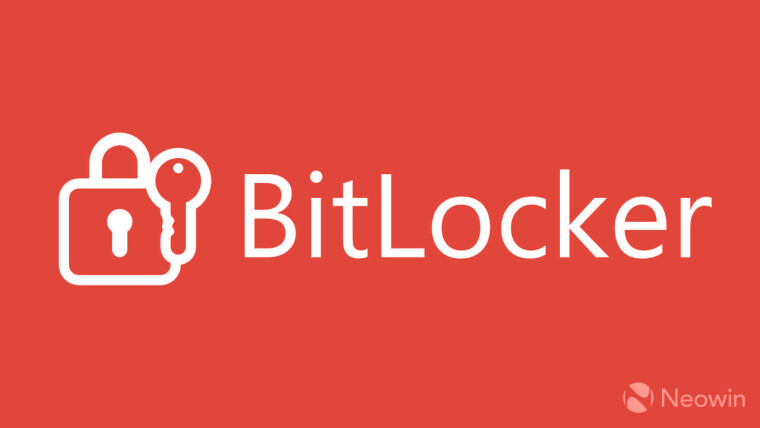The bot that posted this is not programmed to edit typos.
Really wish we didn’t have bots posting at all
really interesting to see that they have more posts than comments
When are stockholders going to realize that the current Microsoft CEO is ruining Windows?
Kinda joking because in many ways windows is better than ever… but also making windows have non starter features enhances Linux adoption soooo
It seems like a buggy mess to me.
I’m getting daily or near daily BSODs since switch back from Debian. I was okay with Vista and 8, and maybe I’m just getting crankier as I get older, but I definitely am not a fan of the current direction Windows is taking.
It’s valid to feel disappointed. Windows 7 was really stable.
My work still has a windows 7 machine with an uptime of something like 12 years.
Windows 7 will idle in the low megabytes. But why does 11 want to use 6-8 Gigs on idle for no good reason?
And it’s not like there’s that much difference between the two operating systems. One is just loaded up with electron wrappers and spyware
Windows can’t be updated in any meaningful way without being rebooted because Windows can’t overwrite a file that is in use. This makes it fairly unlikely for a machine to be up for 12 years.
Windows 7 also doesn’t “idle in the low MBs” It uses almost 1G at least at startup more if you have apps that auto start and like every OS it caches recently accessed files.
Better than ever? What? Bloated than ever maybe.
Better than ever in base usability as an operating system for the average person. And you can run wsl2 and have a full Linux environment too. It’s as close to a macOS user friendly experience as it has ever been without losing the windows identity.
Okay, I’ll give you wsl2, and the “average user experience” being better, but Windows is losing its identity with the IT and customization front. For both destroying the win32 control panel and locking down the shell so you can no longer customize it.
Somewhat ironically OSX recently added widgets to the desktop. Something Microsoft did years ago, removed it for no reason, and then added a flyout to tick almost the same check boxes.
As for me, the spike in resource usage and over saturation of “AI” was enough for me to decide to jump ship.
I’m currently attempting to daily drive Manjaro so maybe my opinion will change, but so far, it feels like home.
They know, read their yearly financial reports. They said for a decade that Windows is not only not profitable, there’s no future for it. Microsoft for several years now is a company that sells cloud and opensource services(Linux, Github, etc).
I’m of the opinion that encryption based security should be compartmentalized. IE, an encrypted folder, or “safe” app. Safes in housing are already a concept that is already commonly known so it would be natural to extend a safe into the digital realm. This would also help in the idea that safes are locked with a key, so if the user loses their keys, whatever is inside the safe, might as well be lost.
Now if EVERYTHING is a safe, (always on encryption). People will never known the difference. Its a dangerous type of security that is likely to be more a loss than a benefit.
You are arguing for selective encryption, but I can’t really find any technical argument in your comment.
Whether we are speaking of encryption at transit or rest, there’s a general consensus that encrypting everything is best in every way except possibly performance for select cases.
For example, it allows hiding (meta)data about the really important bits, and with computers it’s really difficult to tell which bits of (meta)data could be combined to abuse. Tampering is a consideration as well.
For most folks they could just write down their encryption passphrase in a secure location with the rest of their papers since 99.9% of the risk is thieves stealing their laptops. For most folks the biggest secure item they have is the one they use constantly their browser and all the passwords it stores to all their services. You know the thing they use constantly.
A compartmentalized approach makes sense when the laptop contains really vulnerable data like laptops which have been stolen with bunches of client data on it or a journalists communication with confidential sources etc etc. In that case you STILL want to encrypt the whole thing but you want to separately encrypt the really important stuff with a different key so that every time you open your laptop to watch cat videos on youtube you aren’t also unlocking all the data you will have to tell your companies users you lost.
Yes! This happened to me when I turned off the ‘safe boot’ on a laptop via BIOS. It locked me out but I had never agreed to install Bitlocker in the first place, let alone know what key I was supposed to have. It was a total loss & I had to wipe the drive.
MS is hot trash.
The decryption key is saved in the Microsoft account, the error message explains that
I also almost got a panic attack when my Lenovo updated the bios and i was locked out
They’re making an increasingly compelling case for me to switch to Linux.

You can merge the choices and resolve the conflict: Microsoft users are dumb.
Clearly you’ve never used a Mac. It wasn’t until 2024 that you could snap windows, they have a built in dark mode but the word processor that ships with their computer requires you to use a dark page template if you want black background/white text, and lord forgive you if you want to take a screenshot.
I think the vibe is kind of “works for grandma out of the box“, “someone in the small-but-mighty dev community made an [open-source] app for that”
Yeah frustrates me too but seeing it as a kind of culture would probably help me be less frustrated
Then Apple gets tiny bits of occasional flak for Sherlocking
Apple is almost the tale of two companies.
From the software usability perspective, they have the “it just works” reputation and that might be true if you’re doing really basic stuff. I’ve found both windows and Linux to be much more user friendly if you want to do mildly advanced things.
Their hardware is generally pretty solid but comes at a premium, especially once you start talking about increasing RAM/SSD capacity. I have both a MacBook pro M3 pro and a Snapdragon X Elite Lenovo Yoga slim 7x. The 7x can give great battery life, but is much more inconsistent in doing so. On the other hand, the 7x has an amszing 3k OLED screen, has a removable m3 SSD, and you can upgrade to 32 GB of RAM for around $100.
What I find interesting is that a large swath of developers have macs. I get it for some use cases (ARM emulation on ARM vs doing it on x86), but it seems like it’s a bit of a status symbol for others.
Thanks?
Found the Linux user.
Not Arc though, they would have said so
Maybe he uses a Mac?
(I use arch BTW)
This is already looking like Microsuck is asking for a Windows 11/BitLocker based Class Action Lawsuit against them for this data lose blunder, and hopefully get their currently CEO fired.
I’ve decided to switch to Linux come october. I have some reasons I wanna wait as long as I can, but come october I’m leaving Windows behind.
I’ve decided to switch my gaming PC to Linux…a few weeks ago.
No ragrets. My games run faster, I no longer need extra shit to make Windows work the way I want it to work, and I can remote into it however I want without running into artificial roadblocks.
Get started early so you have time to acclimate and address issues. You are going to hate it if you urgently need your computer for something and something unexpected happens.
If you’re new to Linux, I suggest at the very least starting to learn now. If you have a spare device you can install it on, an old laptop or something, dual boot on your existing machine or use Virtualbox…Start learning now, while you still consider Windows an option.
My own journey to the Linux platform included several instances of the following scenario:
I need to get something done. It’s simple, in Windows 7 I know how to do it in seconds. It’s so simple that I don’t know the words for it, just the thing to click to do it. But it doesn’t work that way in Linux, even the vocabulary is different, and you need this done right now because you’re working on something and you don’t have time to stop and learn this right now.
Boot into Windows, get your job done and turned in. Then look up how to do it in Linux later. Eventually you stop hitting that wall.
You’ve decided you have seven months. I’d get to it.
I read the article but am not smarter than before. I heard some time ago that windows does encrypt the drive but you need an active online account and the key will be saved online. So do people forget their online passwords and methods to recover that said account? I dont like m$ and am using linux, but people loosing their passwords, being uninformed about their systems and dont so backups is not the direct fault of the operating system.
Setting up encryption has previously been an affirmative step wherein the user opted into being unable to access their data if they lose their password. Because of this users have the opportunity to back up their recovery key you know after they even learn what one is.
Having it happen on upgrade to an existing machine is inherently confusing and its easy to see how it could lead to data loss.
you need an active online account and the key will be saved online
Is there a legit reason for this? Why can’t they just encrypt the data with the password used to access the online account?
Because then you can’t change your password. Since you would have to decrypt all the hard drives that use windows with that account, and then encrypt them again with the new one.
This also means that if you forget your password you are fucked.
Typically an actual key is effectively just a very long pseaudorandom binary blob and the passphrase is just used to unlock the actual key. This means you can add a new key just by encrypting the actual key with the new passphrase
Bitlocker can be turned on without having an account on device iirc.
I helped my sister deal with this. Bitlocker activated itself, the keys were in her account which she had access to. She had done everything properly but nothing worked to resolve it.
There’s countless forum posts on it since about 2021 if you go looking for it. None of the recovery processes worked so I reformatted and enabled bitlocker at the start. Next time I visit, she’s getting Linux Mint.
Fuck Microsoft. End users shouldn’t be expected to troubleshoot like that.
Lose access to your MS account = lose your data forever. No warnings, no second chances. Many people learn about BitLocker the first time it locks them out.
It seems like they just got locked out of their Microsoft account (which stores the bitlocker key). Idk why they can’t just reset their password or if this article talks about the times where people couldn’t do that due to missing email access or maybe resetting the password deletes the bitlocker keys?
Either way though, the problem is that Microsoft is forcing encryption on everyone and not properly educating them on the consequences like “Backup your decryption key if you care about the data” in a way a normal user actually listens to.
It tech here. Yup sure does. For enterprise customers it gets saved in active directory anyway. But for home users, no way. For new devices I always create a local account and turn off bitlocker if it happens to be enabled. Most people don’t remember their email password, some don’t even remember their email address. So many times I’ve had to remove the drive of a dead PC or laptop and copy all their files off of it, because people just don’t make backups. But already happenend a few times now that a private customer got suckered into making a Microsoft account by one of those full screen pop ups. Probably set it up with an E-Mail some relative of theirs created just so they can download stuff of their Phones App store. And all their stuff just gets automatically encrypted. Bye Bye all the photos you had taken for the last 10 years. Thanks Microsoft.
Why isn’t this a thing for me? Because I skipped MS account creation? So many Win11 issues I read about on here and I get almost none with my vanilla ISO install.
I didn’t expect Windows to become THAT shit. Well it’s good for Linux I guess.
Something broke.
I blame bitlocker.
HEY, moe90!
FIX YOUR FUCKING TITLE
Dude has a stutter be cool
don’t you mean, “FIX YOUR FUCKING TITLEFIX YOUR TITLE FUCKING lazy ass”
😂😂
What a stinker of an OS. Linux never looked so good
Its why I switched to Linux.
I’ve been a Linux user since 2010 and I’m glad I developed that skillset
Same. Except my first pc was running DOS on a black and amber CRT…so switching to Linux even part time in 2010 was pretty easy for me to wrap my head around in terms of CLI stuff.
We use Linux by the way.
But I use arch BTW

All of the data I actually care about is stored on a NAS and backed up in triplicate. The only data actually on my PC are program files.
















